The ECM has the power to adjust the amount of fuel injected if an increase in the amount of air being fed into the engine is detected. However, when the computer detects incorrect fuel and air ratio, it could trigger the P0171 code.
What Does Code P0171 Mean?
When the ECM/PCM is having to add too much fuel based on input from the O2 sensor, the fault code P0171 will be sent to the ECM, which will trigger the check engine light to illuminate. This code could either mean that the oxygen sensor is detecting too much oxygen or too little fuel in the mixture.
This lack of fuel is known as a lean mixture. In simpler terms, what the code P0171 means is that your system has too lean of a mixture and is not operating optimally.
A vehicle running on a lean mixture causes more pollution because it emits oxides of nitrogen (NOx) that are harmful to the environment. Lean vehicles also have a tendency to misfire as hydrocarbons from unburnt fuel reach the catalytic converters.

This could cause a spike in the car’s fuel consumption, as well as exhaust damage and emission test failure.
If you wish to learn more about rich and lean OBD codes, you can read our discussion about air-fuel mixture. To gain a technical understanding of how the air-fuel mixture can trigger codes to be stored in a vehicle, you can read our explanation about the ideal mixture and OBD codes. Otherwise, continue reading the following section to quickly learn the possible causes of P0171.
What are the Possible Causes of the P0171 Code?
Lean fuel mixture is a common issue among many vehicles, regardless of the model year. Passenger cars and trucks alike can be affected but it isn’t always triggered by the same failing component.
For example, a P0171 on your Chevy Cruze could be due to a failing PCV system, while the P0171 on your friend’s Ford F-150 could be from a clogged fuel injector.

Poor fuel mixture is a serious problem that major manufacturers face. If you have a P0171 on your vehicle, for example, the best thing to do is to act as quickly as possible.
The first step is finding out what’s causing this OBD-II code. Here are some of the possible causes of a P0171 code:
- Vacuum leak due to damaged intake manifold gaskets or punctured vacuum and positive crankcase ventilation (PCV) hoses
- Malfunctioning mass airflow (MAF) sensor
- Clogged fuel filter
- Failing fuel pump
- Clogged fuel injectors
- Failing fuel pressure regulator
- Worn-out oxygen sensor
What are the Common Symptoms of the P0171 Code?

Here are the symptoms you need to be aware of that point to a lean mixture problem:
- No symptoms other than the Check Engine Light
- Illuminated Check Engine Light
- Loss of power
- Misfiring
- Rough idling
- Difficulty when starting the car
- Engine stalling
How to Diagnose the P0171 Code
Since there can be more than one faulty part in the system that’s causing the P0171 trouble code, pinpointing the problem isn’t as straightforward as you would think.
OBD-II codes, in general, can sometimes indicate severe problems that may require the assistance of a licensed professional.
For an idea of how to troubleshoot code P0171, check out the video below:
How to Fix the P0171 Code
Fixing a P0171 code depends on which component is triggering the fault. You’ll need to diagnose the code accurately, as outlined above, then perform any necessary repairs. The code could be triggered by anything from a bad sensor to an engine mechanical concern, so you must do your homework.
Also, keep in mind that all vehicles are different. When troubleshooting and repairing diagnostic trouble codes, you should consult the factory repair information for your application. Repair manuals, such as those from Chilton, are useful, but an ALLDATA subscription is even better. ALLDATA has single-vehicle subscriptions for DIYers that provide detailed factory repair information.
Other Notes About the P0171 Trouble Code
A P0171 often triggers with at least the P0170 code, which notes that the PCM has detected an anomaly in the fuel trim. Another code that often triggers at the same time as the P0170 code is the P0172 code. The P0172 code indicates the opposite of the P0171 code, as it triggers when the PCM detects negative fuel trim and the engine runs too rich. The P0171 code and its related codes also make a distinction between air-fuel ratio problems in engine Bank 1 and Bank 2. Bank 1 holds the #1 cylinder, while Bank 2 holds the #2 cylinder.
The location of the bank depends on the vehicle’s make and model. Bank 2 will either be on the passenger or driver’s side. The P0170 to P0175 codes will help you locate and identify the exact fuel trim issue occurring.
While you can operate your vehicle if the P0171 or its related codes are flashing, we strongly recommend against it.
Don’t ignore a P0171 code—address it as soon as possible. A poorly running engine due to a lean fuel mixture can fail if left untreated. A small, inexpensive problem could worsen and make your vehicle undrivable.
Instead of shrugging it off, remember that an OBD-II code P0171 is a serious issue that needs your attention. The consequences of ignoring this trouble code include reduced fuel economy, weak performance, poor ride quality—and even engine damage.
Bring your vehicle to a trusted mechanic as soon as possible so they can fix any issues causing these codes.
Where to Get Replacement Parts to Clear the P0171 Code
You don’t have to stress yourself out if your scan tool reads a P0171 code. If you need to replace parts, be it the intake manifold gasket or the fuel injector, we have you covered here at CarParts.com.
We have a wide selection of top-notch replacement parts to help you get back on the road in no time. Input your ride’s year, make, and model into our vehicle selector to view compatible parts, then change the filters to the brand, price range, and specs you prefer. If you have any questions, contact us using our toll-free hotline, and our round-the-clock customer service team will assist you.
Here at CarParts.com, our replacement parts all come with a low-price guarantee, so you won’t have to spend much of your hard-earned savings just to get your ride back on the road. All our products have undergone strict quality control tests during manufacturing. On top of that, our team of industry experts handpicked our products to ensure we’re giving you only the best options.
Take a look at our selection now and order your replacement parts today!
Products Mentioned in this Guide
Any information provided on this Website is for informational purposes only and is not intended to replace consultation with a professional mechanic. The accuracy and timeliness of the information may change from the time of publication.


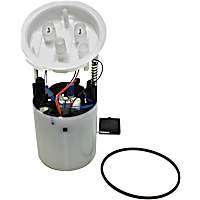 Fuel Pump
Fuel Pump
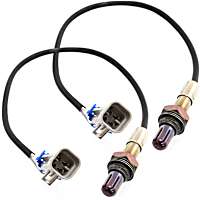 Oxygen Sensor
Oxygen Sensor
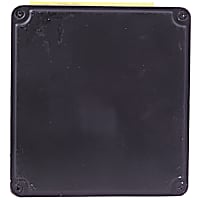 Engine Control Module
Engine Control Module
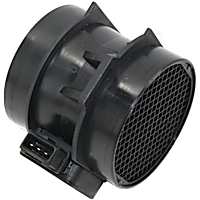 Mass Air Flow Sensor
Mass Air Flow Sensor
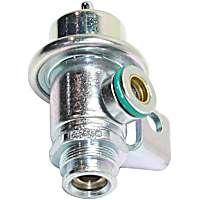 Fuel Pressure Regulator
Fuel Pressure Regulator
 Fuel Injector
Fuel Injector



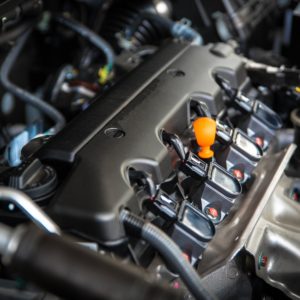












What if you notice little to no side effects to the P0171 code read? It’s as if there isn’t really a problem?
Hello Benjamin,
Your experience with this code is fairly common. Even though you don’t notice any driveability problems, the PCM is detecting a lean condition.
Little to no side effects noticed with the P0171 code error reading. What could this mean?
Did you figure out your problem
Could intake piping, plenum, and coupler geometry and size affect readings on the ECM? I plan to dive into checking for any current leaks amongst the intake system, but I have altered nearly all of the intake system upstream of the throttle body and wonder if air flow/volume has made for an unrecognizable change in the ECM
Hello,
If the only changes you’ve made are upstream from the mass airflow sensor (MAF), you should not get a lean code since the MAF is accounting for that extra air.